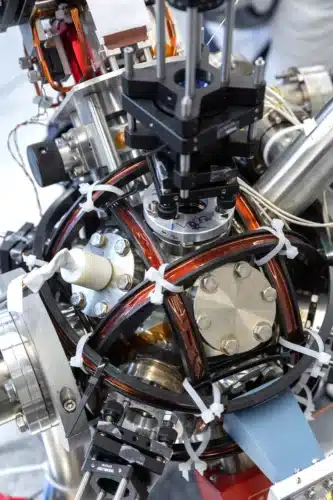Researchers have developed a Standalone quantum-based accelerometer that allows navigation without depending on satellites/GPS

GPS (Global Positioning System) has a wide range of applications, such as obtaining accurate locations around the world, navigation, tracking, and mapping applications. But interference from tall buildings, dense foliage, or any other structure could limit GPS function and communication. Hence, it is necessary to develop devices for navigation without relying on satellites. Therefore, researchers at Imperial College London have invented a quantum “compass” that allows navigation without the need for GPS.
Traditional accelerometers are not accurate and need an external reference to recalibrate them. Due to this drawback accelerometers were not useful in applications where location specificity is required such as navigation. Hence, the newly developed quantum accelerometer has a very high level of accuracy. This is achieved by measuring the movements of supercool atoms, which are cooled to such a degree that they display quantum behavior: they are both particles and waves. The wave properties of the atoms are affected by acceleration, so scientists examine the movements of the atoms by creating an atom interferometer — a tool that measures the displacement of waves. This allows the accelerometer to measure movement through space highly accurately.
This device can be used on ships and trains to precisely locate them when GPS is not available. But it is too large due to the powerful lasers that are required to get the atoms cold enough for the accelerometer to work. Hence, they cannot be accommodated in small devices.
Click here for the Demo Video







